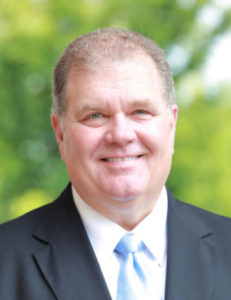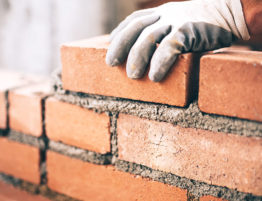By Randy C. Davis
President & Executive Director, TBMB
 Casino operators must know something about bass fishing. They’ll make the lure of a big jackpot dance and sparkle in the bright lights hovering above slot machines and roulette wheels. They mesmerize their catch with nibbles of what could be, and then before someone realizes it, WHAM! The hook is set, and the person is caught and reeled in.
Casino operators must know something about bass fishing. They’ll make the lure of a big jackpot dance and sparkle in the bright lights hovering above slot machines and roulette wheels. They mesmerize their catch with nibbles of what could be, and then before someone realizes it, WHAM! The hook is set, and the person is caught and reeled in.
In the long run, the House wins every time.
Before we go any further, let’s establish an indisputable fact. Casinos make big money for the people who own and build casinos, not for the people who gamble in them.
Unfortunately, there has been serious stirrings this legislative session to move Tennessee toward becoming a casino state. Some of our state lawmakers have entertained a way to bypass our state Constitution and legalize casinos without Tennesseans having the opportunity to vote on this issue.

Randy C. Davis
Currently, Tennessee law states that “Gambling is contrary to the public policy of this state and means risking anything of value for a profit whose return is to any degree contingent on chance, or any games of chance associated with casinos, including, but not limited to, slot machines, roulette wheels and the like.”
Ironically that passage is found in the “Offenses against public health, safety and welfare” chapter of our state statutes, codes and regulations (Section 39-17-501).
Fortunately, the push this session has stalled as some have decided to explore the legality of skirting the Constitution and bypassing voters.
So why are state legislators pushing toward legalizing casinos, even though by their own previous categorization casinos are contrary to public health, safety and welfare? Short answer: Money.
Casinos rake in obscene amounts of money. In fact, according to a February Forbes Magazine article, America’s commercial casinos won an all-time high $53 billion in 2021.
Think about that staggering number. COVID-19 was not fully in the rearview mirror and casinos shattered their previous 2019 all-time pre-coronavirus revenue total by more than a 20 percent increase. Tennessee legislators must think Tennessee is going to get a cut of that profit. But it won’t. Native American Tribal casinos don’t pay taxes.
Tennessee is surrounded by states that legalized casinos on locations considered Native American sacred lands, which is what Tennessee legislators initially proposed doing this session in House Bill 1642 and Senate Bill 1656. Supposedly, one casino is what lawmakers have in mind, and before they pumped the breaks on this initiative, that casino would probably have wound up in West Tennessee (Lauderdale County), but let’s not be naïve.
We all know that once the casino camel sticks his nose under the tent, he’ll soon take up residence and the tent will become full of other casino camels.
Legislators enamored by the sales pitches of gambling lobbyists are seduced by talk of the windfall revenue the state will supposedly gain and by the jobs the industry will supposedly generate. But while legislators drink from that poisonous chalice, they need the antidote of reality. Countless studies through the decades document the social impact of gambling, and single out casinos.
It is not alarmist to state what research proves: Casinos place an increased burden on states to address problems resulting from pathological gambling while also inviting money laundering and racketeering orchestrated by organized crime syndicates. Several studies also show that the longer a casino is in a particular county, violent crime begins to escalate. Two researchers attributed that to “pathological gamblers [who] commit crime as they deplete their resources.”
But let’s bring it down to the everyday level. Easily, most people frequenting casinos are lower and middle class hoping to strike it rich. They are exactly the people casinos prey upon to generate their revenue. Consider this, we live in a state with double-digit poverty rates where many of our children are categorized as severely malnourished.
We battle rampant prescription and crystal methamphetamine drug abuse. Many of our counties have high teen pregnancy rates and low literacy and graduation rates. Do we really need to introduce casinos into an environment for which we are desperate for state leaders to find solutions to existing problems rather than introducing new ones?
Tennessee Baptists, we can’t sit silently by and allow this to happen without our voices being heard. In the end, we may not stop the dismal tide of encroaching evil, but we are called to stand in the gap for righteousness. To be salt and light means we fight societal decay while faithfully proclaiming the light of the gospel. Our friends and neighbors need us to rally to a cause worth fighting for. This is one of those causes.
Where to begin? Pray. Intercede on behalf of our state, our state leaders and for this casino initiative to fall profoundly into the pile of irrelevancy. Yes, this initiative may be delayed, but you know it isn’t going away. The casino lobby is powerful. Our God is more powerful. Pray that rather than delayed, this initiative is dead.
Next, act. Your voice is important and must be heard. You can find the complete contact list of your state representatives here and your state senators here. Call and write and keep calling and writing. Be heard. And when they tell you this isn’t on the legislative agenda this year, tell them you expect them to keep it that way in the future.
Finally, stay informed. Issues like this often require vigilance for the long haul. Know what is going on in your community and across the state.
Let’s stand together in the gap against casinos in Tennessee.
It is a joy to be with you on this journey.








